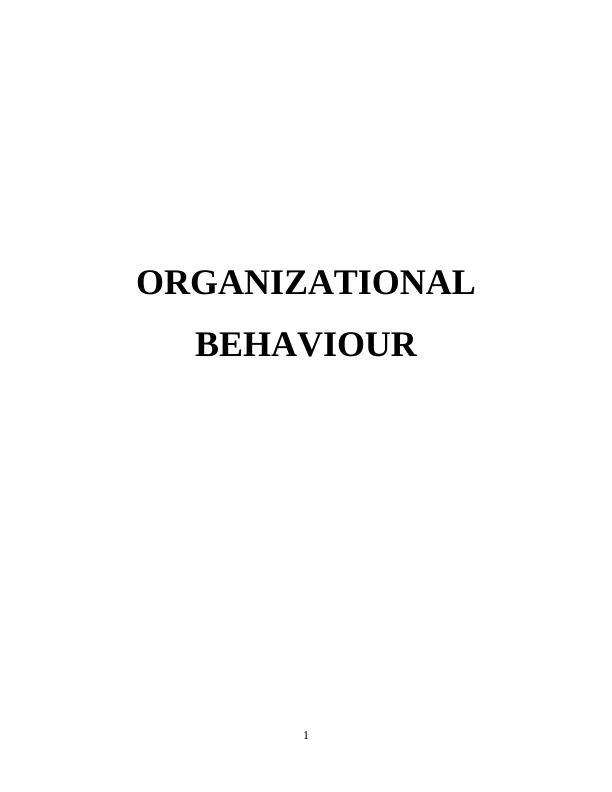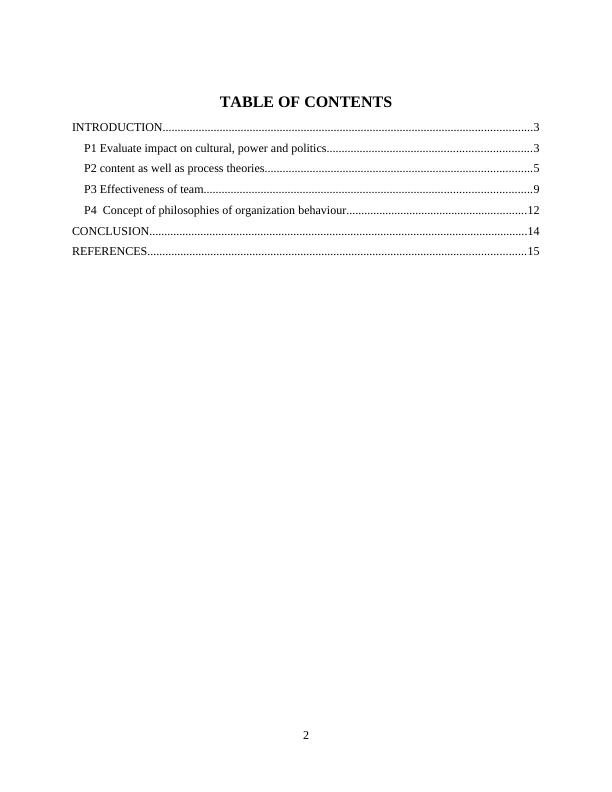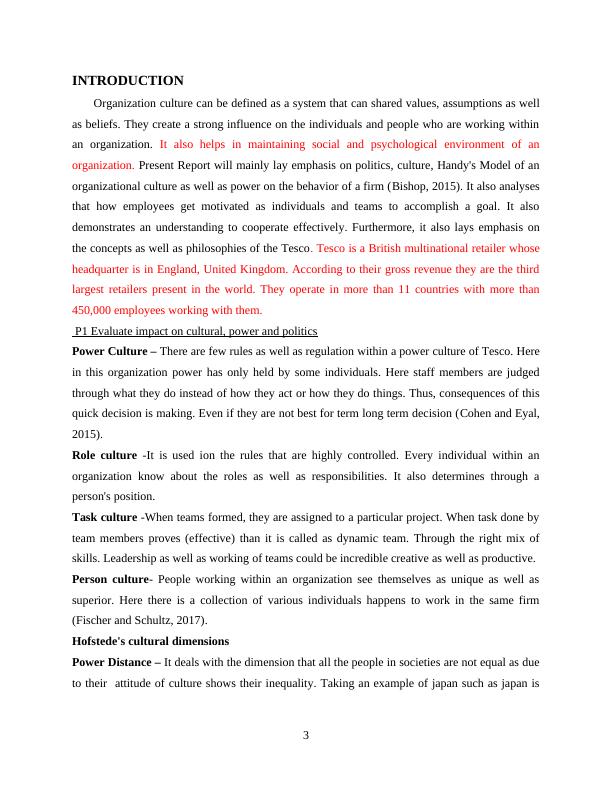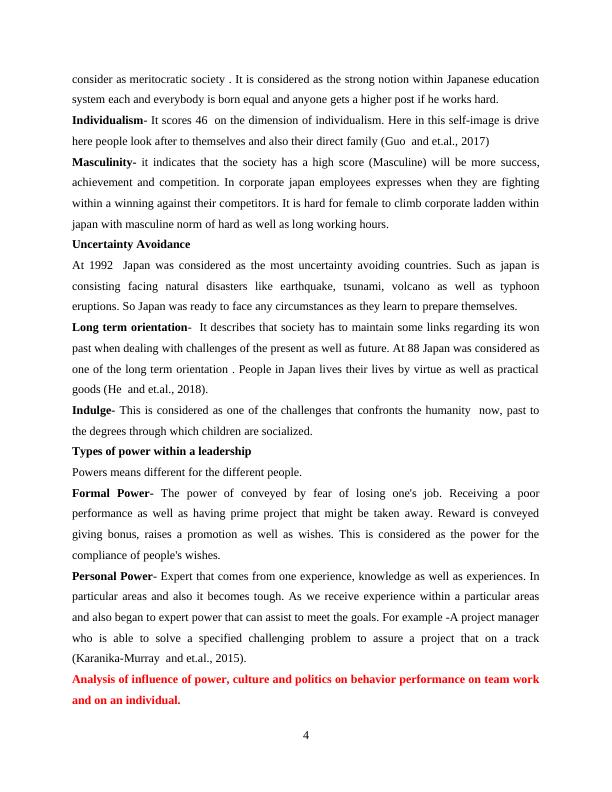Impact of Culture, Power, and Politics on Organizational Behavior
15 Pages5125 Words83 Views
Added on 2023-01-19
About This Document
This report evaluates the impact of culture, power, and politics on organizational behavior. It discusses the different types of organizational culture, Hofstede's cultural dimensions, and the types of power within leadership. It also explores Maslow's theory of motivation and Vroom's expectancy theory. The importance of soft skills in managing teams is also highlighted. The case study focuses on Tesco, a British multinational retailer.
Impact of Culture, Power, and Politics on Organizational Behavior
Added on 2023-01-19
ShareRelated Documents
End of preview
Want to access all the pages? Upload your documents or become a member.
Understanding and Managing Organisational Culture PDF
|12
|3428
|33
Influence of Power, Culture and Politics on Individual and Team Performance
|19
|4760
|33
Influence of Power, Culture, and Politics on Individual and Team Behavior
|16
|4434
|60
Culture, Politics and Power in Organizational Behaviour
|19
|6836
|93
Influence of Culture, Power, and Politics on Individual and Team Behaviour
|15
|3832
|44
P4. Concept and philosophies of organisational behaviour in the context of organisation
|16
|5139
|23




